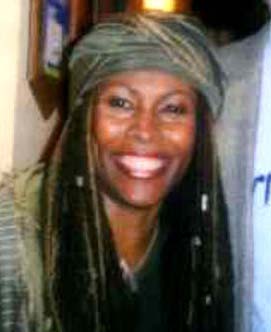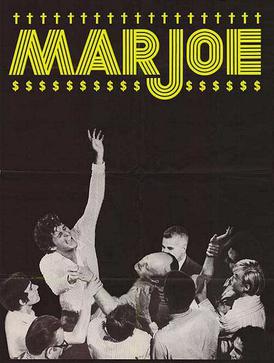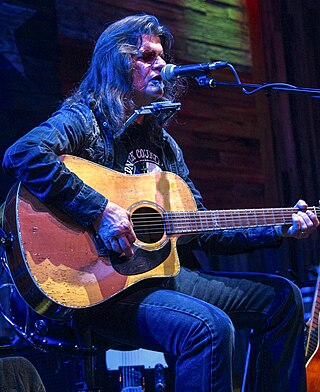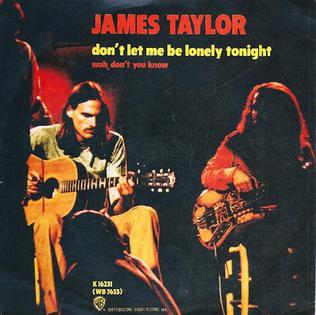Related Research Articles

David Thomas Mason is an English singer-songwriter and guitarist from Worcester, who first found fame with the rock band Traffic, and went on to play and record with many notable pop and rock musicians, including Paul McCartney, George Harrison, the Rolling Stones, Jimi Hendrix, Eric Clapton, Michael Jackson, David Crosby, Graham Nash, Steve Winwood, Fleetwood Mac, Delaney & Bonnie, Leon Russell, and Cass Elliot.

Deborah Cox is a Canadian singer, songwriter, actress, and record producer. Born and raised in Toronto, she began performing on television commercials at age 12, and entered various talent shows in her teenage years before becoming a professional backing vocalist for Celine Dion. In 1994, Cox relocated to the United States and was signed to Arista Records by Clive Davis, releasing her self-titled debut album the following year. Her second studio album, One Wish (1998), was certified platinum in the United States. It was marked by the commercial success of the pop crossover single "Nobody's Supposed to Be Here", which would become her most successful entry on the Billboard Hot 100 chart, peaking at number two and remaining there for eight consecutive weeks. Cox signed with J Records for her third studio album The Morning After (2002), which saw moderate commercial success.
Hugh Marjoe Ross Gortner is an American former evangelist preacher and actor. He first gained public attention during the late 1940s when his parents arranged for him to be ordained as a preacher at age four due to his extraordinary speaking ability, making him the youngest known in that position to this day. As a young man, he preached on the revival circuit and brought celebrity to the revival movement.

Edmond Montague Grant is a Guyanese-British singer, songwriter and multi-instrumentalist, known for his genre-blending sound and socially conscious lyrics; his music has blended elements of pop, British rock, soul, funk, reggae, electronic music, African polyrhythms, and Latin music genres such as samba, among many others. In addition to this, he also helped to pioneer the genre of "Ringbang". He was a founding member of the Equals, one of the United Kingdom's first racially mixed pop groups who are best remembered for their million-selling UK chart-topper, the Grant-penned "Baby, Come Back".

The Kentucky Headhunters are an American country rock and Southern rock band originating in the state of Kentucky. The band's members are Doug Phelps, Greg Martin, and brothers Richard Young and Fred Young. It was founded in 1968 as Itchy Brother, which consisted of the Young brothers and Martin, along with Anthony Kenney on bass guitar and vocals. Itchy Brother performed until 1982, with James Harrison replacing Martin from 1973 to 1976. The Youngs and Martin began performing as The Kentucky Headhunters in 1986, adding brothers Ricky Lee Phelps and Doug Phelps to the membership.

Brenda Russell is an American singer-songwriter, producer, and keyboardist. Russell has a diverse musical range which encompasses R&B, pop, soul, dance, and jazz. She has received five Grammy nominations.

Marjoe is a 1972 American documentary film produced and directed by Howard Smith and Sarah Kernochan about the life of Pentecostal preacher Marjoe Gortner. It won the 1972 Academy Award for Best Documentary Feature.

"Gimme! Gimme! Gimme! " is a song by Swedish band ABBA. It was recorded in August 1979 to help promote their North American and European tour of that year, and was released on ABBA's Greatest Hits Vol. 2 album as a brand new track.

Jon Brooks is a Canadian musician and singer-songwriter best known as a solo performer but more recently as leader of Jon Brooks & The Outskirts of Approval. Brooks’ music may be characterized as literary, allusive, emotionally intense and difficult to categorize, borne as it is from a broad range of influence and musical incarnations. His lyrics attend to, in Brooks’ words, ‘calming those who’ve looked into and seen what is in their hearts and terrifying those who’ve not.’ His albums, often thematic, fixate over love, fear, death, religion, war, post traumatic stress, technology, animal justice, ecology, esoterica, and the stars.
Douglas Brian Riley, CM was a Canadian musician, also known as Dr. Music. He spent two decades with the Famous People Players as its musical director, besides his participation on over 300 album projects in various genres, which included the gold and multi-platinum records Night Moves, Against the Wind, and Endless Wire. Riley died of a heart attack on August 27, 2007.
Gwendolyn Dianne Brooks, was an American soul, r&b and jazz singer. With the Three Playmates, Brooks recorded several songs in 1957. She moved to Toronto shortly thereafter. Her part in Canadian soul music history began when the group Diane Brooks, Eric Mercury and the Soul Searchers was formed. As a solo singer, she recorded two albums and several singles of her own. Her biggest solo hit was "Walkin' on My Mind" in 1969. She was also a prolific session singer. As a vocalist, she provided backing vocals on albums by a multitude of artists that include Anne Murray, Gino Vannelli and Richie Havens. She was also a song-writer.
Motherlode was a Canadian pop rock group formed in 1969 in London, Ontario. The group scored some success in the US with their single, "When I Die", which hit #1 in Canada and #18 on the U.S. Billboard Hot 100 chart in 1969. The group didn't have a bass guitarist. William Smith would play the bass notes on his keyboard. They did however use bass players on their studio recordings.
William Daniel "Smitty" Smith was a Canadian keyboardist and session musician.

Danny Brooks is a blues and Memphis-style R&B musician, singer-songwriter and author now living in Llano, Texas, United States. He performs with a full band as Danny Brooks and The Rockin' Revelators, Danny Brooks & The Austin Brotherhood or Danny Brooks & The Memphis Brothers.

"Don't Let Me Be Lonely Tonight" is a song written and performed by American singer-songwriter James Taylor, from his 1972 album One Man Dog. The song has been included on three of Taylor's greatest-hits collection albums: Greatest Hits (1976), Classic Songs (1987) and The Best of James Taylor (2003). Taylor re-recorded the song for the 2001 Michael Brecker album Nearness of You: The Ballad Book; this rendition won Taylor the Grammy Award for Best Male Pop Vocal Performance in 2002.
Oluwatobi Feyisara Ajibolade, known professionally as Tobi , is a Nigerian-born Canadian singer and rapper signed to RCA Records and Same Plate Entertainment. He released his debut studio album Still in May 2019, his second album Elements Vol. 1 in 2020, and his third album PANIC in 2023.
"I Can Smell That Funky Music" was a hit in 1972 for soul singer Eric Mercury. This was the first time he had a single of his own in the charts. Recorded and produced in the United States, the success of the single was in Canada where Mercury was originally from.
The Soul Searchers were an important part of Canadian soul music history. The group contained notable artists such as Diane Brooks, Eric Mercury, William "Smitty" Smith, Steve Kennedy and Eric "Mouse" Johnson. At times they are also referred to Diane Brooks, Eric Mercury and The Soul Searchers or Eric Mercury and the Soul Searchers.
Steve Kennedy is a Canadian based musician who co-wrote the hit song "When I Die" which was a hit for Motherlode in 1969. He is also notable for being a member of prominent historical Canadian groups such as The Soul Searchers, Dr. Music, Lighthouse, and Grant Smith & The Power. He was also a member of Blood, Sweat And Tears.
The Regents were a Canadian group formed in 1959. They started out as a club band and then reformed as a recording band. They had a Top 20 hit with "Me and You".
References
- 1 2 3 4 5 Friend, David (16 March 2022). "Eric Mercury, Canada's 'Electric Black Man,' singer for 'Be Like Mike' campaign, dies". The Toronto Star/The Canadian Press. Retrieved 16 March 2022.
- 1 2 3 Dillon, Charlotte (2009). "Eric Mercury – Biography". Allmusic . Macrovision Corporation. Retrieved 22 March 2009.
- ↑ The Globe and Mail, 23 March 2022 – OBITUARY, Charismatic singer Eric Mercury turned heads with Electric Black Man album by BRAD WHEELER
- ↑ FYI News, 19 August 2021 – The FYI News Bulletin: 19 Aug. 2021 by David Farrell
- ↑ Celebrity Access, 15 March 2022 – Canadian Singer-Songwriter and Musician Eric Mercury Has Died at 78 by Stacy Simons Santos
- ↑ Discogs – Eric Mercury
- ↑ Eric Mercury – Gimme A Call Sometime , retrieved 17 March 2022
- 1 2 Jam Eric Mercury [usurped]
- ↑ "Discogs credits". Discogs .
- ↑ Imdb Eric Mercury Overview
- 1 2 45Cat – Eric Mercury – Discography, Canada
- 1 2 citizenfreak.com (© Museum of Canadian Music) – Brooks, Dianne – Some Other Kind of Soul Information/Write-up
- 1 2 A Stroke of Luck by William D. Smith 2008, ISBN 0615235654 - Pages 278 to 280 Diane Brooks
- ↑ FYI Music News, 6 September 2019 – Eric Mercury – Electric Black Man – A Conversation By Bill King
- ↑ Soul Strutter, Monday, 6 September 2021 – Eric Mercury & The Soul Searchers (2021) – Lonely Girl (Big Man Records #BMR-1006)
- 1 2 Soul Discovery, 25 July 2021 – Eric Mercury and The Soul Searchers
- ↑ Popsike Rare Northern Soul 45, Eric Mercury, Lonely Girl, Sac 485742435
- 1 2 The Globe and Mail, 23 March 2022 – OBITUARY, Charismatic singer Eric Mercury turned heads with Electric Black Man album by Brad Wheeler
- 1 2 3 FYI Music News, 6 September 2019 – Eric Mercury – Electric Black Man – A Conversation by Bill King
- ↑ FYI News, 16 March 2022 – The Eric Mercury Interview, Conducted By Bill King
- ↑ Cash Box , 9 November 1968 – Page 38 Fairlead Mgt. Formed; BS&T, Procul Signed
- ↑ Christgau, Robert (1981). "Consumer Guide '70s: M". Christgau's Record Guide: Rock Albums of the Seventies . Ticknor & Fields. ISBN 0-89919-026-X . Retrieved 7 March 2019– via robertchristgau.com.
- ↑ Cash Box, 31 January 1970 – Page 42 Hollywood
- ↑ rob.toadshow – Music Reviews, Elliott Randall Guitar Archives Volume One
- ↑ Billboard, 11 December 1971 – Page 53 International News Reports, Eric Mercury on LP Promo Tour
- ↑ VANCOUVER TOP 40 RADIO – CKVN 1410Top 40, Collector's Issue No. 90 WEST COAST MUSIC SURVEY 31 December 1971
- ↑ "RPM Top 100 Singles – January 15, 1972" (PDF).
- ↑ TV Guide – Marjoe Gortner
- ↑ Ex.Premie.Org – Who Was Maharaj Ji? OUI Magazine Article – May 1974 By Marjoe Gortner
- ↑ Texas Monthly, Jan 1974 – Page 59
- ↑ Second Hand Songs – Original, Down the Backstairs of My Life by Eric Mercury, VERSIONS, Down the Back Stairs of My Life written by Eric Mercury, William D. Smith
- ↑ Radio & Records, VOL 3, NUMBER 20 FRIDAY MAY 23, 1975 - Page 23 RADIO & RECORDS ALBUMS, KWST FM/LOS ANGELES
- ↑ Radio & Records, VOL. 3, NUMBER 21 FRIDAY, MAY 30, 1975 - Page 14 RADIO & RECORDS ALBUM ACTIVITY, KMET FM/LOS ANGELES
- ↑ Radio & Records, VOL. 3, NUMBER 23 Friday June 13, 1975 - Page 22 RECORD INDUSTRY NOTES Continued from page 20
- ↑ Billboard, 15 August 1981 – Page 80 Soul, Billboard's Recommended LPs
- ↑ Billboard, 1 August 1981 – Page 10 General News, Call Mercury
- ↑ Cashbox Magazine.com – The CASH BOX Top 100 Black Contemporary, Week ending MARCH 12, 1983
- ↑ Cash Box, 19 March 1983 – Page 32 TOP BLACK CONTEMPORARY SINGLES
- ↑ Joel Whitburn Presents Top R & B/hip-hop Singles, 1942–2004, - Page 207
- ↑ "Merc And Monk". Discogs. Retrieved 17 March 2022.
- ↑ FYIMusicNews, 27 March 2019 – 'Electric Black Man' Eric Mercury Releases New S/T Song by David Farrell
- 1 2 Soul Strutter, Monday 6 September 2021 – Eric Mercury & The Soul Searchers (2021) – Lonely Girl (Big Man Records #BMR-1006)
- ↑ Canadian Singer-Songwriter and Musician Eric Mercury Has Passed Away
- ↑ In Dangerous Rhythm, FRIDAY, 28 December 2007 – Eric Mercury Lonely Girl
- ↑ 45Cat – Eric Mercury And The Soul Searchers, USA
- ↑ 45Cat – ric EMercury – Discography, USA
- ↑ Spotify – Bright Eyed Woman (feat. Eric Mercury) – Single
- ↑ Discogs – Eric Mercury And The Soul Searchers, Releases
- ↑ Canadian peak